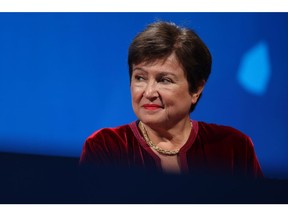(Bloomberg) — Turkish bankers can look forward to more deals as gains in the nation’s stock market rekindles interest in mergers and acquisitions.
The country’s economy is poised to recover from almost zero growth in 2019 after a series of interest-rate cuts stoked demand for credit. A lull in political tensions between Washington and Ankara is also adding to the likelihood that more deals, including initial public offerings, may cross the finish line. Both KPMG International and Ernst & Young Global Ltd. expect M&A to increase about threefold in 2020.
The improved outlook comes after the value of takeovers and mergers in 2019 plunged to the lowest in 15 years and share sales slid to a decade low, according to data compiled by Bloomberg. The slump in deals followed a currency crisis that weighed on growth and pushed many companies to renegotiate their debt to avoid collapse.
Private-equity firms are also returning, according to Mustafa Bagriacik, JPMorgan Chase & Co.’s senior country officer for Turkey and Azerbaijan.
“It also evidences the improved outlook of Turkey internationally,” he said in an email. “Turkey continues to be resilient through the troughs, and investors are keen to realize opportunities.”
Still, regional instability could weigh on deals. President Recep Tayyip Erdogan’s administration is at loggerheads with Greece over offshore natural-gas reserves in the eastern Mediterranean, a dispute that’s now dragged in strife-torn Libya and Abu Dhabi. Turkey is also involved in the Syrian conflict.
Energy Deals
The country’s struggling energy companies may draw interest after the lira weakened quicker than producers could raise prices to repay foreign borrowings.
“Value investors with a longer-term investment horizon are continuing to look at Turkey as providing attractive distressed-asset plays, in particular energy,” said Jonathan Friedman, a partner at Wallbrook Advisory Ltd. in London. “Investors, however, are continuing to be concerned about a wobbly economy and political instability, both at home and in the region.”
Investor interest in Turkey will hold as long as geopolitical developments improve and Turkey’s economic-reform plan delivers more progress, said Ozge Gursoy Buyukavsar, head of corporate finance at EY’s Turkish unit.
The audit firm’s consultancy expects M&A deals to reach $8 billion from its estimates of $2.7 billion in 2019. KPMG predicts M&A could top $10 billion, from its estimates of $2.9 billion in deals last year, helped by stability in the lira and faster growth.
Some M&A deals may come from the sale of companies under receivership and held by a Turkish-government controlled fund, Buyukavsar said. Power plants owned by Turkey’s state-owned power utility Elektrik Uretim AS may be sold, while toll roads under the government’s build-operate-transfer plan could also be up for auction, he said.
“Infrastructure and export-driven sectors continue to be of interest to investors due to their reduced exposure to Turkish lira fluctuations and resilience to demand elasticity,” said Bagriacik of JPMorgan.
A bounce in equities may spur companies that put plans on hold to reconsider an IPO, he said. Turkey’s stocks benchmark has rallied 40% since dropping to a 2 1/2-year low in May last year, reaching an all-time high earlier this month — until fears over the outbreak of a deadly virus in China triggered a global sell-off.
Some Turkish deals are already in the works. Azerbaijan’s state-owned oil company mandated Credit Suisse Group AG and JPMorgan for an IPO of its Turkish business. Power-grid operator Bereket Enerji Uretim AS hired Goldman Sachs Group Inc., JPMorgan and Citigroup Inc. to offer shares in its renewable-energy unit, while Karadeniz Holding, an operator of electricity producing ships, is considering an IPO in London, people familiar with those plans said last year.
Istanbul-based brokerage BGC Partners forecasts $3.1 billion of IPOs between now and 2023, and $2.4 billion of secondary offerings through 2021, it said in an emailed note.
The window for M&A deals will be short because the improvement in equity markets could push valuation expectations higher, said Emre Hatem, director of investment banking and finance at Garanti BBVA in Istanbul.
The shares of members on the Borsa Istanbul 100 Index trade at a 42% valuation discount, as measured by multiples of their enterprise value — which excludes market capitalization and debt — to their estimated earnings before interest, taxes, depreciation and amortization.
“Almost all companies trade significantly below their peers in comparable markets and their historic levels,” Hatem said. “These low valuations, create a lot of high-return opportunities for international investors. The early entrants will be the ones to benefit most from the current reasonably low valuation levels.”
Bloomberg.com




















Comments